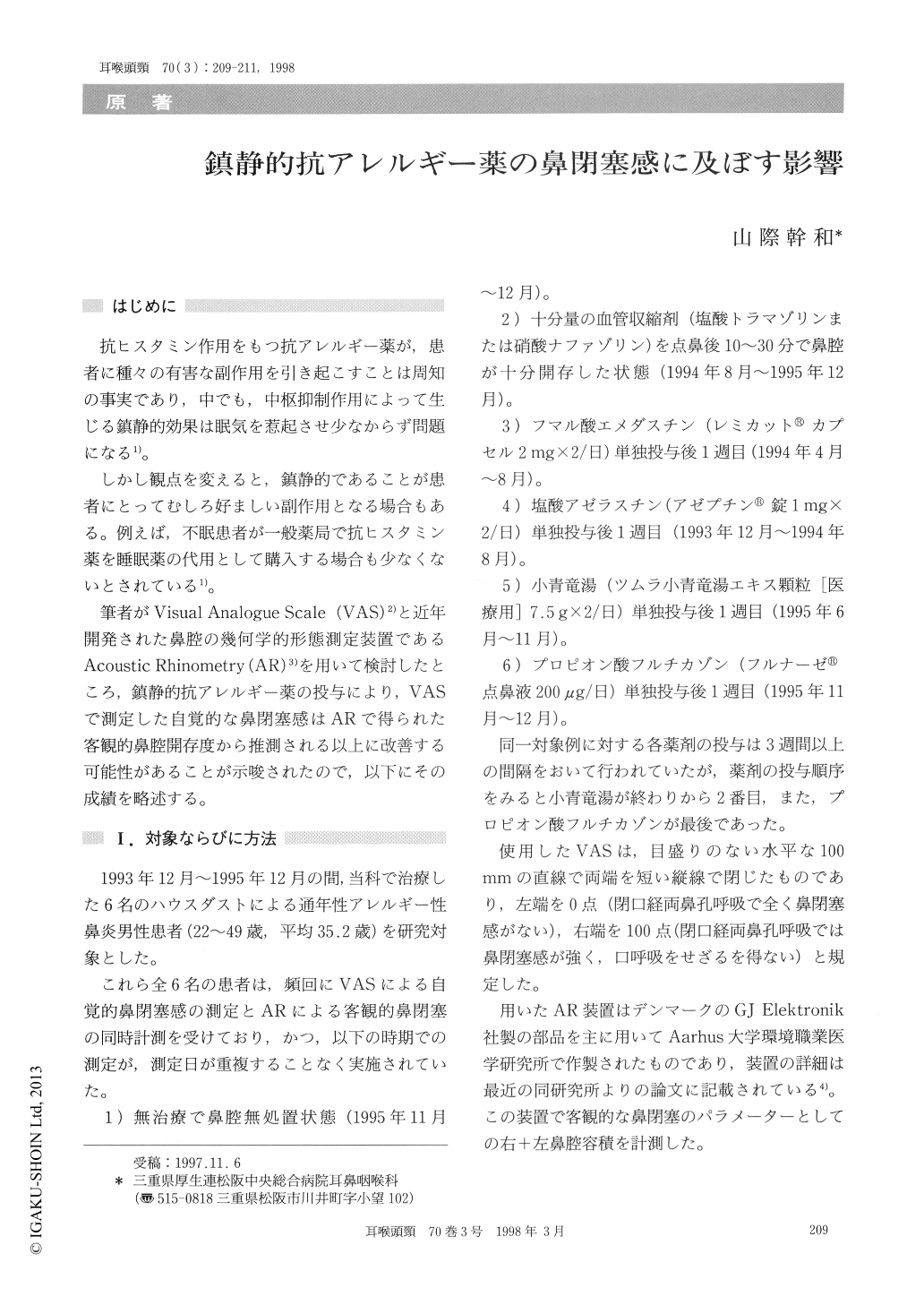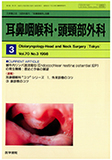Japanese
English
- 有料閲覧
- Abstract 文献概要
- 1ページ目 Look Inside
はじめに
抗ヒスタミン作用をもつ抗アレルギー薬が,患者に種々の有害な副作用を引き起こすことは周知の事実であり,中でも,中枢抑制作用によって生じる鎮静的効果は眠気を惹起させ少なからず問題になる1)。
しかし観点を変えると,鎮静的であることが患者にとってむしろ好ましい副作用となる場合もある。例えば,不眠患者が一般薬局で抗ヒスタミン薬を睡眠薬の代用として購入する場合も少なくないとされている1)。
筆者がVisual Analogue Scale (VAS)2)と近年開発された鼻腔の幾何学的形態測定装置であるAcoustic Rhinometry(AR)3)を用いて検討したところ,鎮静的抗アレルギー薬の投与により,VASで測定した自覚的な鼻閉塞感はARで得られた客観的鼻腔開存度から推測される以上に改善する可能性があることが示唆されたので,以下にその成績を略述する。
Sedating effect of anti-allergic drugs (emedastine difumarate and azelastine hydrochloride) has been known to cause a variety of adverse reactions in-cluding depression of central nervous system, anti-cholinergic effects and gastrointestinal distur-bances.
The present clinical study in 6 male patients (22-49 years of age) with perennial allergic rhinitis sug-gested that these drugs improved subjective sensa-tion of nasal airflow assessed with a visual analogue scale more than expected from an increase of nasal cavity volume measured by simultaneous acoustic rhinometry. Other drugs which have no sedating effect such as xiao qing long tang and fluticasone propionate aqueous nasal spray did not produce the same results. This effect was considered rather favorable in the treatment of patients with allergy-induced nasal obstruction.

Copyright © 1998, Igaku-Shoin Ltd. All rights reserved.


